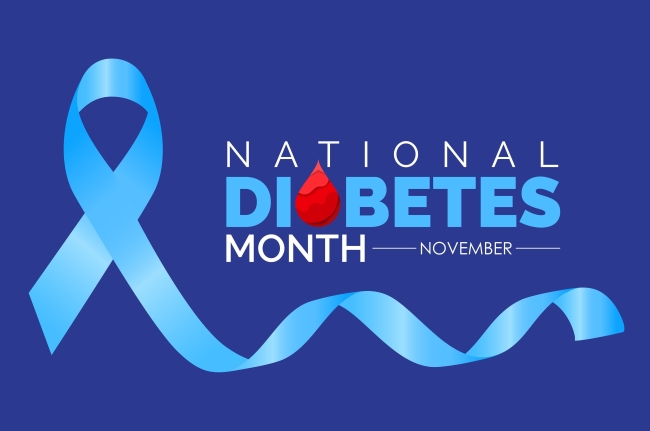To create awareness about the disease and its impact on millions of Americans, November is National Diabetes Month. Diabetes is a chronic condition that can worsen over time and, if not diagnosed and treated, cause serious health problems, such as heart disease, stroke, kidney disease, eye problems, and nerve damage.
Diabetes affects about 37 million Americans. Nearly 40% of the adult diabetic population is aged 65 or above. Medicare recognizes the importance of helping beneficiaries manage this disease and covers many diabetes-related services, including diabetic equipment and supplies. It also provides diabetes self-management training to teach diabetics important aspects of managing their disease, such as through diet, exercise, and medication. Depending on the severity of your condition, you may qualify for medical nutrition therapy, foot exams and therapeutic shoes or inserts, and glaucoma tests. Ask your doctor or insurance carrier if you need help understanding your benefits.
2023 Brings Good News for Insulin Users
If you have diabetes, you know how important it is to take your medications. A cap on insulin prices has made it easier for diabetics to afford their medications. Rolled out in two phases in 2023, the Inflation Reduction Act has capped insulin costs at $35 per month and eliminated deductibles. If you receive a 60- or 90-day supply of insulin, your costs are capped at $35 per month. If you take more than one type of insulin, your costs will not be more than $35 for each covered insulin. These costs apply even if you receive Extra Help.
It’s important to note that the $35 cap applies to the insulins your plan covers. Every insurer has its own unique formulary of covered medications. There are more than 70 insulin products on the market, and plans are not required to cover all of them. This means one insurer may cover your insulin whereas another may not.
How you administer your insulin determines how Medicare covers it. Medicare Part B covers your benefit if you use a traditional insulin pump and your durable medical equipment benefit (DME) covers the pump. Deductibles and copays may apply to your DME benefit. Medicare Part D covers your insulin if you use a disposable pump. If your Part D plan covers your disposable pump, it is considered a diabetic supply, meaning deductibles and copays may apply.
Some prescription drugs used to treat diabetes are not insulin or are a combination of insulin and another drug. The $35 cap does not apply to these drugs.
Medicare Advantage C-SNPs for Diabetics
Chronic Special Needs Plans (C-SNPs) are special Medicare Advantage plans for people with long-term chronic conditions, such as diabetes. A C-SNP may offer extra services or benefits such as:
- Access to hospitals and doctors who specialize in your condition.
- Low or no copayments for primary care doctor and specialist visits.
- Lower drug costs for the medications you need to treat your condition.
- A Care Coordinator who will help coordinate the many aspects of your medical care, including by making sure you have the right prescriptions and are taking them correctly.
Each C-SNP plan is available in a specific area. You can use Medicare’s Plan Finder to search for plans in your ZIP code.
How to Enroll in a C-SNP
If you are newly diagnosed or have a worsening condition and there is a C-SNP plan available in your area, you will qualify for a Special Enrollment Period that allows you to enroll in a C-SNP. You must have Medicare Parts A and B to be eligible. When you apply, your doctor will need to provide documentation to confirm that you have the specific condition the C-SNP covers. You may need to prove that you continue to meet the criteria periodically throughout your coverage.
Although managing your diabetes can be complex, finding the right Medicare coverage doesn’t have to be. The experienced team at Healthcare Educators can help you compare a variety of plans. Contact us today.

